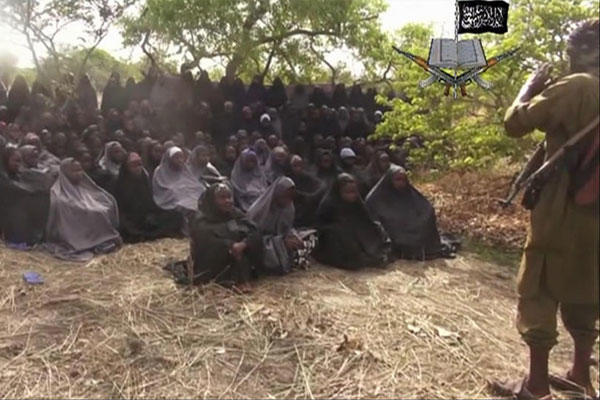U.S. Africa Command has reached deal with the Nigerian military for sharing intelligence gleaned from surveillance by American spy aircraft in the hunt for the schoolgirls abducted by Boko Haram.
"We have finalized agreements with the Nigerians for sharing intelligence with them, specifically related to the kidnapped girls," Army Col. Steve Warren, a Pentagon spokesman, said Monday.
Pentagon officials also said that MC-12W Liberty spy planes with a crew of four, and RQ-4 Global Hawk drones were now flying round-the-clock over areas of northeastern Nigeria where Boko Haram is suspected of kidnapping more than 200 schoolgirls on April 14 from the town of Chibok.
The intelligence agreement had to skirt U.S. laws barring cooperation with foreign militaries suspected of human rights abuses.
Amnesty International and other human rights organizations have accused the Nigerian military of abusive tactics in thus-far failed efforts to combat Boko Haram in mostly-Muslim northern Nigeria.
AFRICOM has sent 16 personnel to Nigeria to work on intelligence and communications in the search effort. Army Gen. David Rodriguez, who heads the command, was in Nigeria last week to negotiate the intelligence pact.
At the White House Monday, President Barack Obama met for lunch with several combatant commanders, but Rodriguez was not among them, Pentagon officials said. Rodriguez also did not participate in the White House meeting by video teleconference.
On Sunday, a bomb blast in a Christian neighborhood of Kano, the largest city in northern Nigeria, killed at least four people, Western news outlets reported. There were no immediate claims of responsibility.
Over the weekend at meetings in Paris, Nigeria and four neighboring countries reached agreement on sharing intelligence and border surveillance in the search for the missing girls. U.S. and Western allies agreed to provide technical expertise and training for the new regional effort.
Under the arrangement, Nigeria pledged to coordinate patrols and exchange intelligence with Benin, Cameroon, Chad and Niger.
Cameroon President Paul Biya, who has often been at odds with Nigerian President Goodluck Jonathan, said, "We’re here to declare war on book Haram."
Jonathan claims to have mobilized 20,000 troops, plus aircraft and intelligence sources, in northern Nigeria to search suspected Boko Haram hideouts.
More than 1,100 people have been killed in Boko Haram attacks this year, according to Nigerian authorities, but the government claims to have pushed the terror group back into hideouts and strongholds in the northeastern state of Borno bordering Cameroon.
-- Richard Sisk can be reached at richard.sisk@monster.com






























